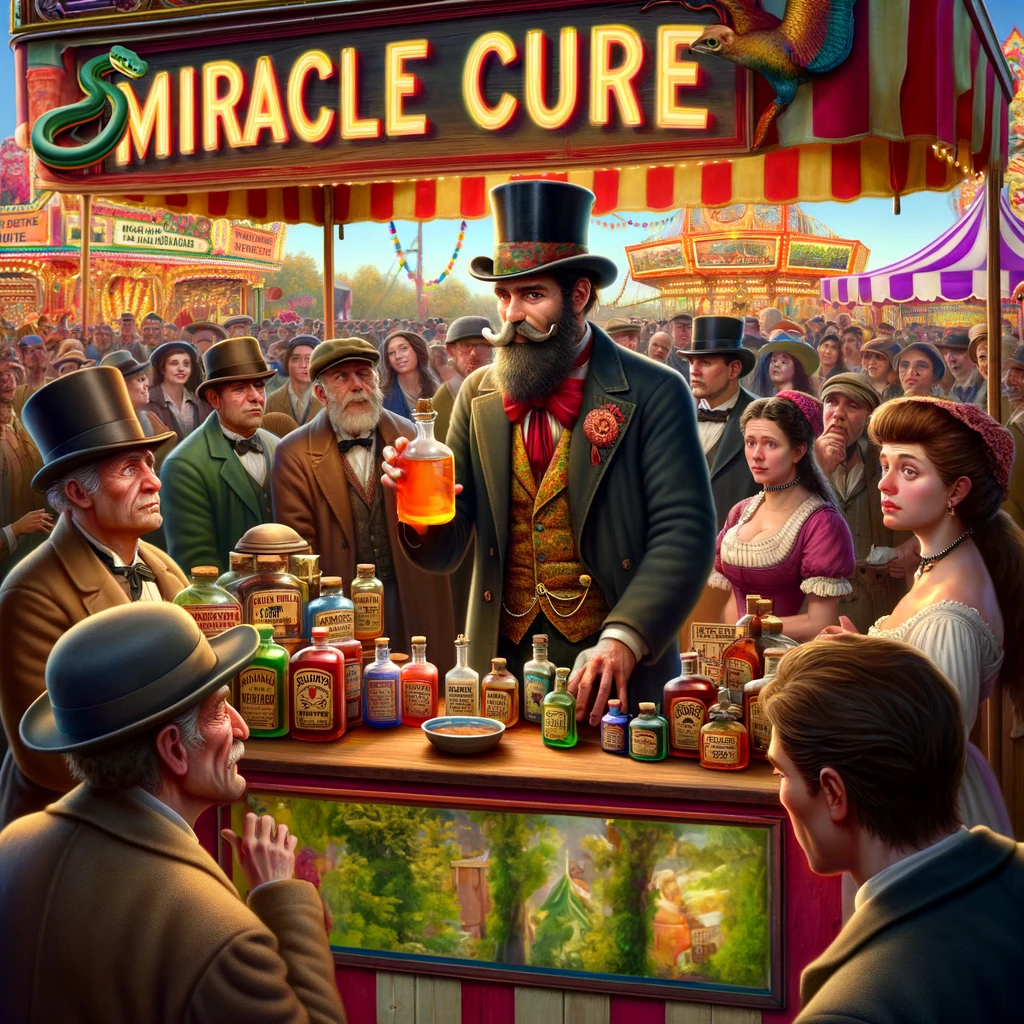Let’s begin by exploring the concept of living a balanced life, a central theme of this book. I consciously avoid prescribing specific behaviors or actions in the pursuit of life goals. However, it is essential to emphasize the importance of cultivating a mindset that is both goal-oriented and driven by the desire for success.
This mindset is especially beneficial when navigating the stress and emotional challenges that often accompany any pursuit. Think of this approach as a dedication training course, where your daily task is to set and achieve a manageable goal, regardless of your circumstances. Always approach these goals with ambition. As you achieve each daily task, you not only reinforce your drive but also master the art of realizing your aspirations.
In these first opening lines, where I have the chance to connect with you, we face a decision similar to the “Red Pill or Blue Pill moment,” as chosen by the protagonist computer hacker Neo, played by Keanu Reeves, vividly depicted in the first film by the Wachowski’s, “The Matrix.”
I believe our pursuits essentially boil down to engaging with content and developing relationships that either propel our professional journeys—these I call ‘Red pill moments’—or become missed opportunities, plunging us into a continuous cycle of distractions. Among the many interpretations of this concept, one of my favorites is ‘living in denial.’ It reflects how we often find satisfaction in the mere intention of our actions, only to settle for half-measures, which I refer to as ‘Blue pill moments.’ If this scenario unfolds, it indicates that we are shifting focus or are being distracted by something new without fully committing to our original path.
This book operates under the assumption that you are generally committed to achieving the ultimate goal of running a successful business, adhering to the principles laid out herein. If not, you may find this guide challenging and possibly disruptive to your trajectory. Regardless, I appreciate your engagement and curiosity at this juncture. I trust that the time you invest in this book will enlighten you about achieving what you deem important while on your journey. We are dedicated to producing work that accommodates both successful and challenging outcomes, aiming to assist you in reaching your goals.” The old adage states that money can’t buy you happiness, but the reality is that the wealth acts as a distraction, but so does failure and the stress of not being able to cover your bills. Each are only measurements that we use to legitimize or detract from our purpose.
Reflecting on my own experiences, I realize that the material possessions I once cherished did indeed bring me joy, though not for the reasons one might assume. Each of us strive for a bigger box to place all of the stuff we’ve collected throughout our lives. Few of us actually become satisfied from having that stuff we’ve collected, pile up around us until we buy a bigger box to put more of our stuff into. Life can be so much more rewarding if you are willing to work at it.
Another way to look at this is to consider the scenario of driving an expensive Italian sports car in bumper-to-bumper traffic. It might appear glamorous, but the reality is starkly different. From an aerial view at 50 feet, you could spot any number of vehicles—a delivery truck, a teenager’s muscle car, a Toyota Prius, someone driving a Subaru, and even someone driving the wrong way on the 405 South. In these moments, despite our differing circumstances, we share a common frustrations in that we all wish to be anywhere but here, as we all have better places to be. What vehicle you’re in rarely motivates anyone else to make your drive any easier. So the metaphor is that even if your top-of-the-line, hand-built supercar has a top speed of 295 Mph, you’ll simply never achieve it when stuck in traffic.
“There are well-established theories that delve into these aspects of human behavior. For instance, Abraham Maslow’s Hierarchy of Needs, a cornerstone of Motivation Theory, suggests that individuals progress to fulfill higher levels of needs once basic ones are met. Then there’s the concept of goal-setting, which taps into the fundamental human need to set and achieve objectives, inherently linked to improving one’s status. Lastly, personal ambition, although broad, fundamentally relates to an individual’s drive for success or achievement, always aiming for a state superior to their current one.
A compelling exploration of this topic is found in Daniel H. Pink’s book, ‘Drive: The Surprising Truth About What Motivates Us.’ Pink delves into the intricacies of human motivation, highlighting three critical elements that propel us: autonomy, mastery, and purpose. He argues that a deep understanding of these components can significantly enhance our performance and satisfaction, both professionally and personally.
I’ve come to realize that true happiness extends beyond merely satisfying material desires; it involves improving my own life by helping others enhance theirs. This is where my motivation for this book comes from. To truly enjoy an unlimited level of success, you must and will evolve into a leader who inspires those around you to give their best always. You might be the person who courteously allows another driver to merge into your lane, accepting that it may add another minute to your drive. Ultimately, the people you collaborate with will repay you with increased productivity, loyalty, and a stronger commitment to the project’s completion.
This wasn’t a sudden revelation but an understanding built over years through interactions with countless individuals, numerous projects, successes, and adjunct failures, meaning ancillary initiatives or strategies that did not succeed as planned. These experiences have led me to reflect on the essence of true fulfillment. The key lies in identifying your personal motivations and realizing that they are the fulcrum of which your Universe spins.
What’s crucial is finding your reasons for pursuing your goals, as life will reward or challenge you accordingly. This is how we, as social beings, evolve—most of us, at least. My journey has taught me the importance of a community where each individual contributes uniquely to a shared vision. Whether your journey is about achieving recognition or simply fulfilling a need to be active, discover what triggers your motivation. As we seek to improve our relationships with those around us and within ourselves, then we will always have a reason to persevere in our pursuits.”
A human lifetime is not a race; it is a journey made up of steps leading to your destination. If you look at it from this perspective, you’ll find that you get out of life in experiences what you pay into it in learning and putting into practice.

One cannot become a pilot without first learning to fly. A digital artist, without learning and understanding the necessary tools. A medical Doctor without thousands of hours of education, degrees, hard work, each designed to prove capability and instill trust in others, etc. Each and every step should be taken deliberately, as if it were the most significant you will ever take. By slowing down and appreciating each phase of your journey, you will spiritually grow to understand that no path is a waste if it brings you closer to your goals. Having faith in yourself is vital to this journey. If finding personal faith is challenging, trust in the process instead.
Looking back, I realize that while pursuing my dreams, the most significant aspects of my pursuits were the people I met and through these pursuits, the relationships that I shared and not the material possessions I acquired. This realization has inspired me to focus on what has brought me the most joy personally. Each of us is searching for answers, and everyone experiences their own doubts and fears. Do not be misled by superficialities. Instead, invest your emotional and physical efforts in the steps necessary to achieve your goals. If you are determined, you will find a way.
As you embark on the adventure of a career in filmmaking, the most critical challenge is to understand the needs and aspirations of your potential clients. This is not about reaching out to everyone but about strategically connecting with individuals who need your unique visual storytelling skills to convey their messages. Building a successful career in filmmaking is a gradual, deliberate process. As you hone your skills, the quality of your work improves, leading to larger projects and better offers. Clients pay for your expertise—skills they lack or don’t have the time to develop. This targeted approach not only makes your work more rewarding but also more impactful.
Below are key steps for aspiring filmmakers and industry newcomers eager to launch a thriving film business and become the next movie making hero.
As the Marvel® character Colossus from Deadpool© would say: Everyone thinks it’s a full-time job. Wake up a hero. Brush your teeth a hero. Go to work a hero. What the path actually looks like is building your career step by step until you can look back and see the monumental sum of your efforts. I hate to use pun but the path is Colossal. But like anything worthwhile in life, it’s never looking at the end of the line but focussing on the steps that eventually get you to your goal.
There are no shortcuts. Attempting to bypass the necessary, often challenging work not only undermines your skills but also risks portraying you as inexperienced—or worse, being labeled a “bozo” by industry peers, a term famously coined by Steve Jobs.
Steve Jobs was known to recognize when someone had crossed that threshold of competence. Although a brilliant marketer and a dynamic presence, Jobs himself admitted towards the end of his battle with pancreatic cancer that the most valuable aspect of his life was the people he chose to surround himself with. Maybe that is his greatest legacy.
There are countless people involved in building anything great. We are all stuck in the proverbial traffic and each of us live silently within the chaos of our own lives. The World would be a much better place if we could remember that we each bring our own fears and hangups along for the ride. As the image of traffic above depicts, you can choose to be on your path despite the unpleasantries or choose to be non-present as depicted by the empty vehicles on the roadway. The lesson here is profound: let the right people in, actively work at nurturing the network and together, you can build extraordinary things quickly. Find your Steve Wozniak, your Jon Ive, your Tim Cook and just witness the real magic that happens. Build an organization around those principles and change everyone’s lives around you.

Remember, dedication and time are your most valuable assets. Success is often a hidden sculpture within a block of failures, missed opportunities, and unfinished projects. Your commitment should be taking on challenges for their own sake—rather than for material gain. This simple act of perseverance cultivates a wealth of remarkable experiences that are far more beneficial to your future than you may realize. This relentless pursuit is what defines a truly fulfilling life. Commit to this process, and you will find that success naturally follows for those passionate about perfecting their craft.
Making excuses about why you can’t achieve something almost guarantees failure. It is a lack of drive, desire, or passion to shape the world as you see fit that keeps you from success. Instead, embrace a mindset focused on overcoming obstacles and reaching your goals. I have wasted, countless hours on friendships with people who have a defeatist attitude. Surround yourself with Warriors, or people that have a can-do attitude and a meticulous approach to getting things done. It will benefit you far greater than immersing yourself in the negativity that just follows some people around like a dark cloud.
Instead of merely “paying your dues,” think of it as collecting experiences that propel you towards your objectives. Execute your tasks with excellence and visibility; make your achievements known. When you do, people will notice and often seek you out for your expertise. Let others take shortcuts while you seize the opportunity to demonstrate what you are truly capable of doing for others.
Paying your dues should be rephrased to reflect what it really means. “Collecting experiences that get you closer to your goals.” Do what you do well enough, and others start to notice. Do it loud enough by networking with others and more people in positions you seek will take notice, do it often enough and the right people will take notice, they will call you to do it for them too. Let others believe in shortcuts, that is why there will always be opportunities to showcase what you can do for them. Have a service heart and do it well enough, people will seek you out.
Where to start? Grab a note pad, a tablet, whatever. Jot these things down about yourself.
Some of the processes we will be developing together will help you take a more strategic approach to arriving at the goal line of your efforts, which hopefully will get you across your personal goal line.
- Understanding your unique offering: It is the ‘How’, ‘Why’, and actionable processes to carve out your niche.
- Developing a strategic approach: Master the art of targeting your audience with precision.
- Cultivate your craft: Enhanced filmmaking skills through continuous learning and practice.
- Building a network: Forge meaningful connections within the film industry. Start locally.
- Marketing the vision: Learn how to effectively communicate your vision to the world. Stay humble, simple.
- Sustaining your passion: Strategies for maintaining drive and enthusiasm in the face of challenges.
Prepare yourself to take on the demons or self-doubts that will haunt you on your journey.
Beyond these core attributes is the ability to identify and plan ahead for obstacles and pitfalls which come in the form of wasting time, spending emotional capital, schemes and scams and identifying those who will continuously drag your efforts down.
Tip of the day: Don’t be an asshat. A little etiquette goes a long way.
- Respect for Others: Showing genuine respect towards other people’s opinions, and personal boundaries.
- Empathy: Demonstrating the ability to understand others feelings, which guides one’s actions and responses.
- Politeness: Practicing good manners and being courteous in your interactions with others.
- Self-awareness: Recognizing how your actions and words affect others and being mindful of this impact.
- Responsibility: Taking ownership of your actions and their consequences, and more importantly, become aware and apologize when you’re in the wrong, correct your behavior and then move on.
- Inclusivity: Do not exclude or marginalize others based on differences such as race, gender, sexual orientation, religion, etc.
- Helpfulness: Being willing to assist others and contribute positively to their experience.
In summary, not being an “asshat” means behaving in a way that is considerate to others and enhances the community or social setting you are part of.
Navigating the complexities of any professional environment, especially industries known for their competitive and high-stakes nature, requires both caution and discernment. It’s essential to be mindful of the fact that not everyone you encounter will have your best interests in mind. Unfortunately, some individuals or entities might exploit inexperience or insecurities for their own benefit, tarnishing the reputation of the industry in the process. This doesn’t mean that the sector is devoid of integrity, but it’s crucial to stay alert to the motives of those around you.
Recognizing the distinction between genuine support and opportunistic behavior is key. While competition is an inherent aspect of any industry, it’s important not to mistake competitors for mentors or supporters. They have their own objectives and may prioritize their success over yours, sometimes even to the detriment of your endeavors. Moreover, interpersonal relationships within professional settings can be complex. Good intentions don’t always equate to beneficial outcomes, especially if individuals bring their own issues and agendas into your professional journey. Emotional intelligence and the ability to discern genuine guidance from manipulation are invaluable skills in such contexts.
Maintaining a focus on your career goals amidst these challenges is vital. Be wary of distractions, negativity, or discouragement that could derail your progress. Recognize that while the journey is fraught with challenges, it’s also filled with opportunities for growth, learning, and meaningful connections.
In sum, while vigilance against potential scams and schemes is crucial, so is nurturing a positive, resilient mindset. Remember to stay kind, remain true to your path, and cultivate a network of support grounded in mutual respect and genuine encouragement. This balanced approach will not only help safeguard your career aspirations but also contribute to your overall well-being and success in the film industry.

A final note on the topic: A scheme typically benefits its proposer at your expense, while a scam deceitfully promises value it fails to deliver. Distinguishing between these will spare you both heartache and precious time. Understand early on that time is your most invaluable asset. Misusing your time or emotional capital on futile pursuits are never rewarding and rarely fulfilling. They darken you and take away life’s most precious asset: Time. The emphasis on discernment in how we allocate our time underscores the importance of making conscious choices—about the people we trust, the projects we undertake, and the values we live by. This discernment allows us to avoid the pitfalls of being drawn into the darkness of unfulfilling endeavors and instead, focus on what truly enriches our lives.
In sum, understanding the true nature of schemes and scams, coupled with a deep appreciation for the value of time, empowers us to make decisions that protect our well-being, foster genuine growth, and ensure that we live our lives to the fullest. Remember, every moment spent is a moment you cannot get back, so choose wisely, aim for authenticity, and let your efforts over time reflect the light of your true desires and aspirations.


